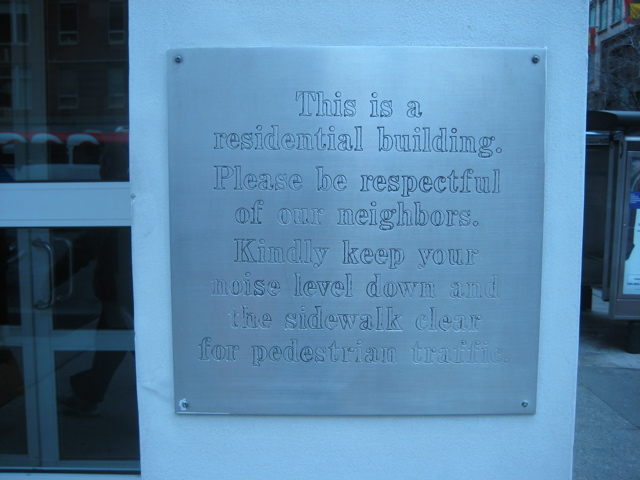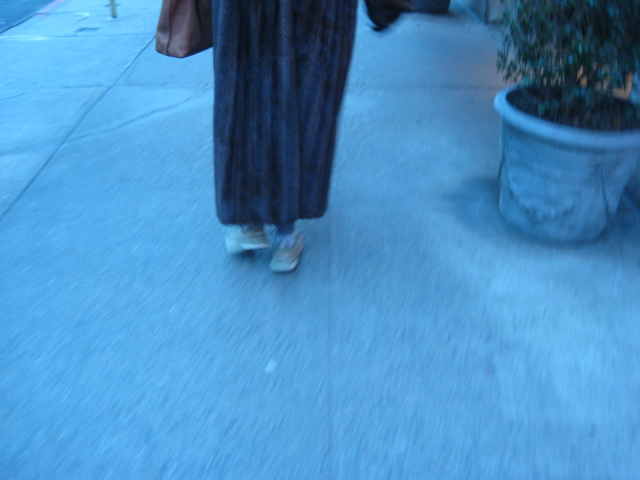Like any other year, 2015 held its share of Issues of Perfect Propriety - or the lack of it - in the news. Yes, people are still behaving badly everywhere, sometime astonishly so. ENTERTAINING AT HOME
January saw one British family invoice another when their child failed to attend a birthday party. Etiquetteer wrote about this issue here, but the most Perfectly Proper way to deal with no-shows is to stop sending them invitations. Certainly one doesn't make a scene involving one's children, or the children of others. A wedding guest in Minnesota also got a bill from a Bridal Couple when they failed to attend the wedding. As frustrating and expensive as no-shows are, it's not Perfectly Proper to bill them.
THE WEATHER
New England was hammered with record-shattering blizzards in winter, which led one sexagenarian female to attack another with a snow blower. As the police chief involved said, “Emotions may run high during a historic weather event like the Blizzard we just endured, but that is no excuse for violence.” Etiquetteer couldn't agree more. Indeed, it inspired Etiquetteer to write on blizzard etiquette. And conditions deteriorated so much that later on Etiquetteer had to write even more.
RESTAURANTS AND FOOD
This year also saw the rise of a terrible practice, that of making multiple dinner reservations at different restaurants for the same time. While this increases one individual's options, it's discourteous to other diners, and disastrous to restaurants, who count on filling every seat to pay their bills. Stop it at once! Another restaurant issue to hit the news was the number of people claiming "allergies" for preferential treatment. And speaking of people who are precious about their food, even the Thanksgiving table is a battleground now. Etiquetteer rather wishes people would just be grateful there's something to eat . . .
TOURISTS
The behavior of tourists made the news this year. American tourists were caught carving their names into the Colosseum in Rome. The twenty-something California women managed one initial each before getting caught. Remember, take only photos, leave only footprints. But don't take photos of someone's bedrooms. Harvard University had to issue new rules for tourists to protect the privacy of their students. And you might want to think about taking photos at the 9/11 Memorial in New York. One writer called out tourist behavior there, especially around selfie sticks.
CLOTHING AND FASHION
Anno Domini 2015 saw the rise of "athleisure wear" - shudder - which has led children to reject denim for public wear in favor of sweatpants. There was also the Suitsy, the business suit onesie. This article explains, rather fascinatingly, why we're dressing so casually now.
Also, musicians are taking a stand about their standard uniforms of white-tie or black-tie formal attire. In another direction, see-through wedding dresses are being promoted by designers. Of course Etiquetteer thinks they're Perfectly Proper - if you're getting married at the Folies Bergere. Another fashion trend that needs to end is the sloppy manbun, now also available as a hairpiece. Sadly.
First Lady Michelle Obama made the news when she didn't cover her hair on a brief visit to Riyadh to meet King Salman of Saudi Arabia. Her allegedly bold and courageous stance in not wearing a headscarf was, in fact, Perfectly Proper diplomatic protocol, as was shown by photographs of previous First Ladies and Female World Leaders like Angela Merkel, also without headscarves while meeting Saudi dignitaries. The Duchess of Cambridge made a fashion choice that brought coverage for a different reason: wearing a bright red gown for a state dinner in honor of China. Since red is the national color of China, that was not just Perfectly Proper, but also Deftly Diplomatic.
Higher Education is supposed to teach students about making Appropriate Life Choices, such as wearing shoes that will not make you fall over. Etiquetteer felt alternately sorry and embarrassed for this young woman who floundered through her graduation because of her shoes. Conversely, ladies in flats were turned away from screenings at the Cannes Film Festival. Please, ladies and film festivals, safety first!
EXHIBITIONISM
Under the guise of asking a question of Senator Rick Santorum, Virginia Eleasor let out an incoherent rant against President Obama, accusing him of nuking Charleston. This led Etiquetteer to ask questioners at public events whether they really want to ask questions or make their own speeches.
AIR TRAVEL
Regarding air travel, The Boston Globe reported on the rising phenomenon of ultra-Orthodox Jewish men who, when flying, refuse to sit next to women not their wives on religious grounds. Later in the year The New York Times wrote about the increasingly fraught sport of seat-swapping on airplanes. One man no doubt wanted to switch seats after his seatmate repeatedly stabbed him with a pen because he was snoring. Violence against fellow passengers is never Perfectly Proper. Etiquetteer would have put that seatmate on a no-fly list.
THE THEATRE
Stories about bad behavior in theatres continued to make the news in 2015, including Madonna Herself, who was not invited backstage after a performance of Hamilton because the cast saw her texting throughout Act II. But even Madonna was upstaged by the young man who went onstage before a performance to recharge his cellphone on the set! And even that Astonishing Event was eclipsed by the woman who went backstage to ask the actors where the restroom was during a performance.
Benedict Cumberbatch, a True Gentleman, appealed to his fans in a Most Perfectly Proper Way not to use devices during performances.
CHILDREN
This year Etiquetteer tried out a March Madness-style survey of Pet Peeves. The winner, from the Table Manners/Dining Out category: Ill-Mannered Children of Complacent Parents. And in fact, there were some related news stories. A little girl's meltdown at a White House function led Etiquetteer to wish more parents used babysitters, for instance. But the champion news story on this topic - and perhaps for the entire year - has to go to the incident at Marcy's Diner, when the owner yelled at a crying toddler who wouldn't shut up.
GENERALLY IMPROPER BEHAVIOR
Anno Domini 2015 began with a story about a woman in Florida shaving her - ahem - "bikini area" while operating a motor vehicle. While Etiquetteer understand the desire to be completely groomed before arriving at one's destination, Etiquetteer longs for the day when it was understood that ladies and gentlemen were completely groomed before they left the house.
Both Vice President Joe Biden and actor John Travolta came in for criticism for getting too "up close and personal" for greetings with Ladies Not Their Wives.
A Florida fraternity got itself into a colossal amount of trouble at its spring formal when drunk fraternity boys spit on wounded veterans, stole their American flags, and urinated on them. It should be needless to say that these aren't the values any fraternity is supposed to inculcate into its members.
Thirty people got in a fight over whether or not someone cut in line to use a waffle maker. Sometimes it's best not to escalate the situation. Sometimes it's best to stay in a hotel with a proper restaurant with a proper cook to make the waffles.
Perfect Propriety and pets moved uneasily in a Brooklyn building where dog waste in stairwell and elevators was becoming an issue.
And finally, a South Carolina politician used his holiday greetings to express his unhappiness over a vote on displaying the Confederate flag by enclosing this message: “May you take this joyous time as an opportunity to ask forgiveness of all your sins, such as betrayal.” Rather like getting a lump of coal in the mail.
And with that, allow Etiquetteer to wish you a Happy and Perfectly Proper New Year in 2016!



















